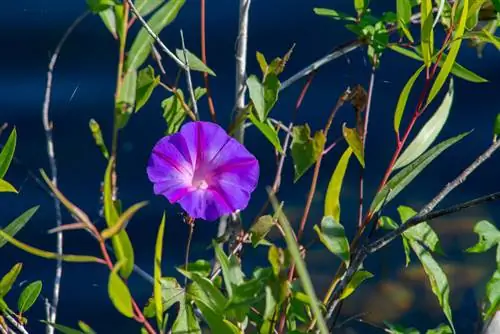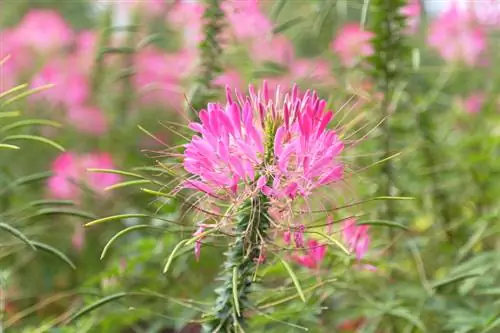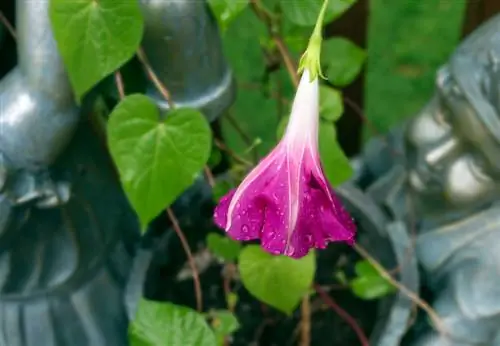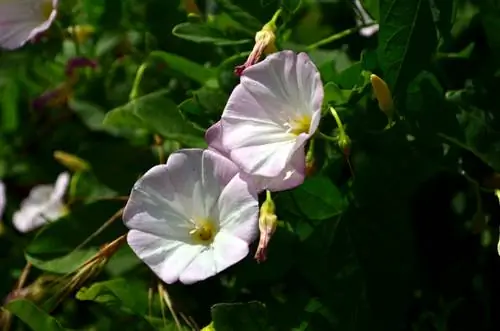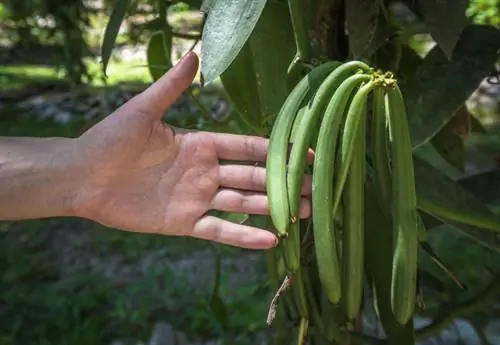- Author admin leonars@hobbygardeners.com.
- Public 2023-12-16 16:46.
- Last modified 2025-01-23 11:20.
The morning glory has been enjoying increasing popularity in Central European gardens for several years. This is quite understandable due to the many attractive color patterns of the funnel-shaped flowers, but you should also be aware of the characteristics of these plants.
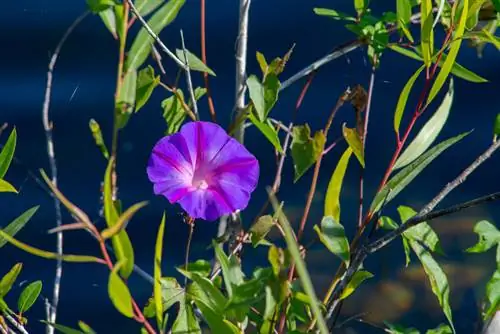
Are morning glories poisonous?
The morning glory contains toxic lysergic acid amides in its above-ground parts, especially in the seed capsules. These can lead to he alth problems or even death. Therefore, caution is advised, especially with small children and pets.
Which parts of the morning glory are poisonous
The above-ground parts of many morning glory species contain lysergic acid amides, which are also found in the ergot fungus. Although these toxins do not occur in the same concentration in all subspecies, you should still exercise caution when dealing with all morning glories due to unclear variety boundaries and contradictory research findings. Since the concentration of these hallucinogenic substances in the seed capsules is particularly high, you should wear gloves when harvesting the seeds for sowing the following year (€9.00 on Amazon).
Deal with the dangers realistically
Similar to morning glories, many other common garden plants can lead to intoxication that is difficult to predict and possible he alth problems and fatal consequences when consumed, such as the following:
- Foxglove
- Yew
- Angel Trumpet
- Pfaffenhütchen
The plants do not necessarily have to be avoided, but as a gardener you should be aware of the possible danger, especially with small children and pets, around the plants.
Tip
In the past, consumption of the hallucinogenic toxins from morning glories has resulted in serious he alth problems and deaths. Due to the dangers that are difficult to calculate, the various parts of the plant should never be consumed as substitute drugs, as the proportion of toxins in the plants can vary greatly.

